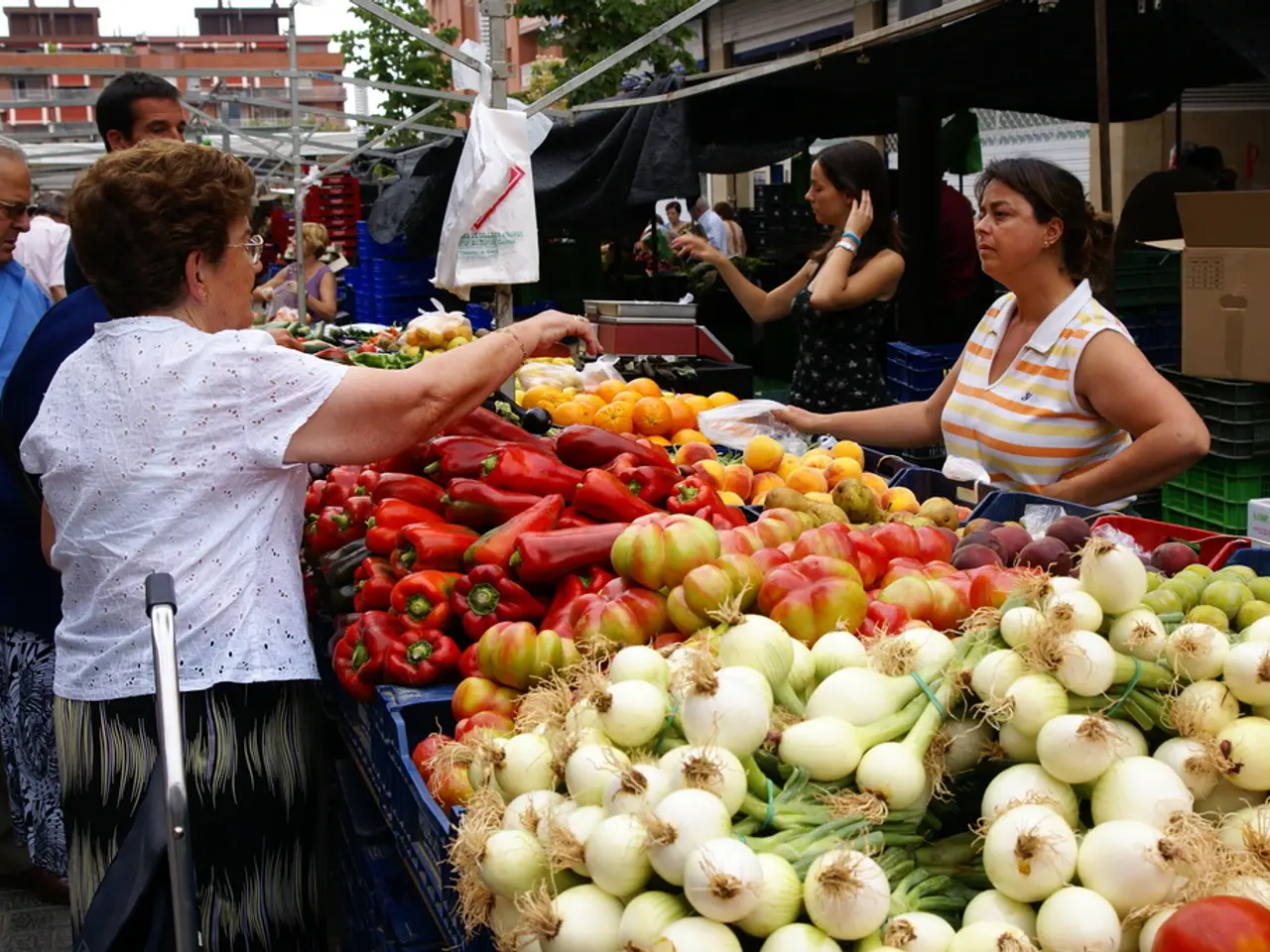Final Opportunity: Discussion on the United Nations Plastics Treaty
In the heart of Switzerland, the city of Geneva hosts a significant conference aimed at addressing one of the world's most pressing environmental issues: plastic pollution. The conference, attended by hundreds of participants from environmental organizations, industry lobby groups, and diplomats, has the ambitious goal of establishing a global tool for reducing plastic pollution.
The chairman of the conference, Ecuadorian ambassador Luis Vayas Valdivieso, expressed his belief that the agreement could change the future of environmental history. The proposed measures, if agreed upon, would focus on addressing the entire life cycle of plastics—from design and production to consumption and disposal.
The treaty aims to promote the circularity of plastics to prevent environmental leakage, including phasing out certain plastic products that pose significant risks to human health and the environment. It also seeks to promote environmentally sound management of plastic waste.
Key aspects under discussion include implementing a comprehensive approach to plastics, potentially introducing caps on plastic production and limitations on hazardous chemicals in plastics, encouraging a circular economy, and ensuring environmentally sound plastic waste management practices.
The current draft treaty text includes 32 articles designed to cover design, production, consumption, and waste management, aiming to drastically reduce plastic leakage into ecosystems. However, negotiations are complex due to divergent interests, including strong industry lobbying.
Germany, the largest plastic waste exporter in Europe, is a key player in these negotiations. China, the world's largest plastic producer, has already planned national production restrictions. However, oil-producing countries, such as Iran, Saudi Arabia, Gulf states, and Russia, are preventing an ambitious treaty and want to discuss only waste and recycling.
The EU, considered a pioneer in banning single-use plastics like straws and plastic cutlery, is negotiating for all member states. More than 100 countries, including Antigua and Barbuda, Vanuatu, the EU, and many African, Asian, and Latin American states, are calling for a strong treaty with clear provisions, including production limits.
Achieving strict global standards for plastic reduction is considered unrealistic, given the disparities between nations. Nevertheless, more than 160 states are participating in the negotiations, which will run until August 14.
If an agreement is reached, a diplomatic conference for signing will take place next year. The treaty is a legally binding instrument being developed over three years following a 2022 UN Environment Assembly decision, with the goal to end plastic pollution globally, including in seas.
The agreement is important for people in Europe because microplastics spread worldwide, and many plastic products not made in the EU may not comply with EU regulations. Around 300 companies and financial institutions in the "Business Coalition for an Ambitious Plastic Treaty" also support a "robust treaty with global rules and uniform commitments."
Last year, an estimated 500 million tons of plastic were used worldwide, with around 400 million tons likely to become waste without action. Plastic waste destroys habitats, threatens animals and humans, and poisons ecosystems. The treaty, if successful, could mark a significant step towards a cleaner, healthier planet.
[1] UN Environment Programme (UNEP) Press Release, "Geneva Conference Kicks Off Negotiations on Global Plastic Pollution Treaty," 2023. [2] UNEP, "Global Plastic Pollution Treaty: Text of the Draft Agreement," 2023. [3] UNEP, "Global Plastic Pollution Treaty: Key Aspects Under Discussion," 2023. [4] Reuters, "Industry Lobbying Complicates Negotiations for Global Plastic Pollution Treaty," 2023.
- The chairman, Ecuadorian ambassador Luis Vayas Valdivieso, is advocating for a global tool in the plastic pollution treaty discussions, believing it could revolutionize environmental history.
- The proposed treaty aims to address the entire life cycle of plastics, including the phasing out of certain products harmful to health and the environment, as well as promoting environmentally sound plastic waste management.
- Discussions involved implementing comprehensive plastic approaches, potentially imposing caps on plastic production, limiting hazardous chemicals, promoting a circular economy, and ensuring environmentally sound plastic waste management practices.
- The EU, as a pioneer in banning single-use plastics, is negotiating for all member states, joining over 100 countries calling for a robust treaty with clear provisions, including production limits.
- The Business Coalition for an Ambitious Plastic Treaty, consisting of around 300 companies and financial institutions, supports the treaty that will create global rules and uniform commitments towards reducing plastic pollution.




